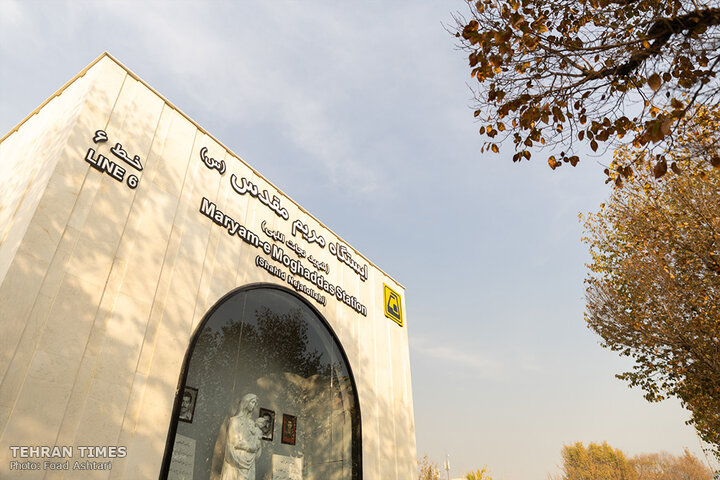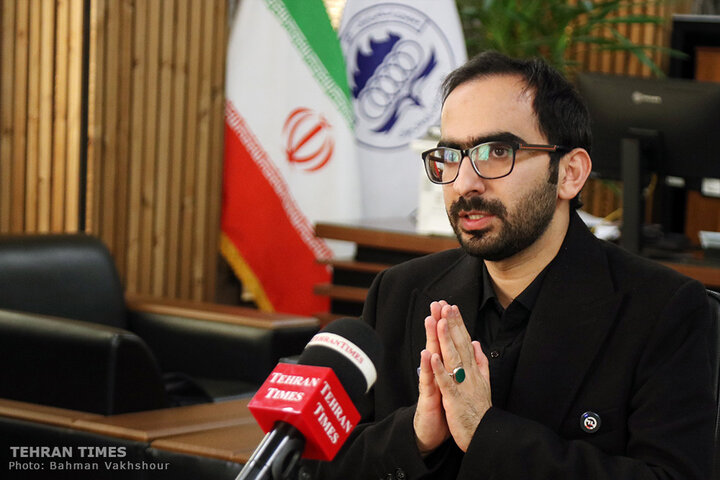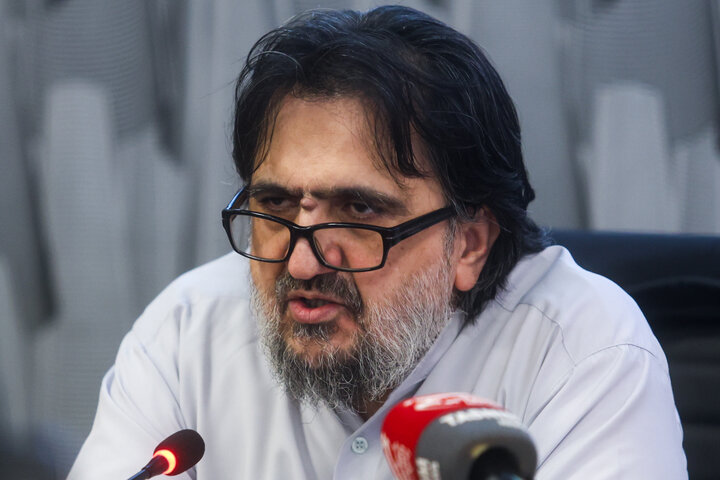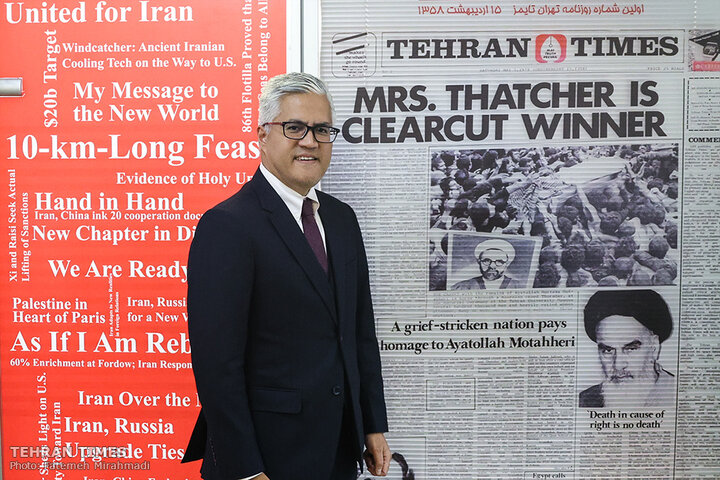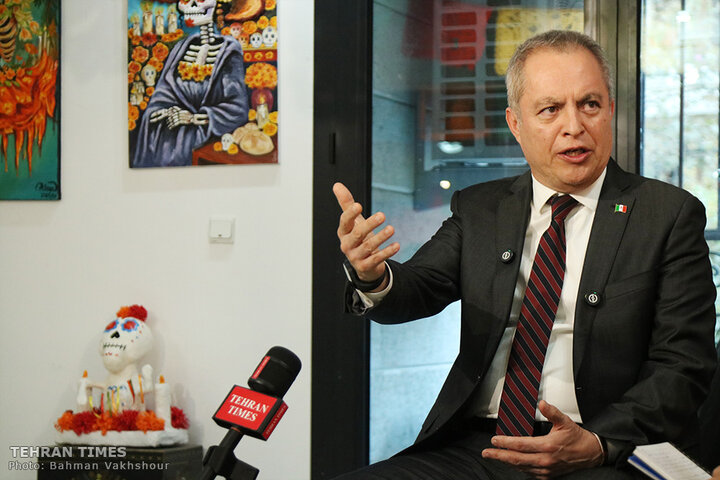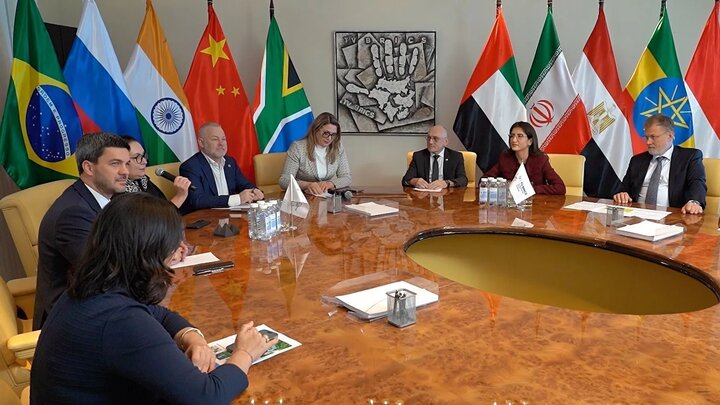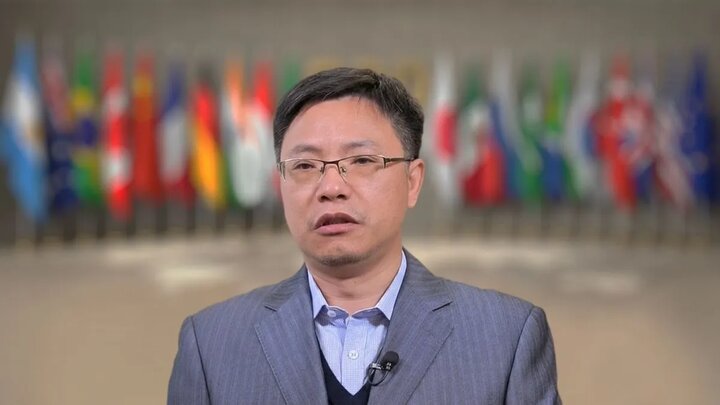-
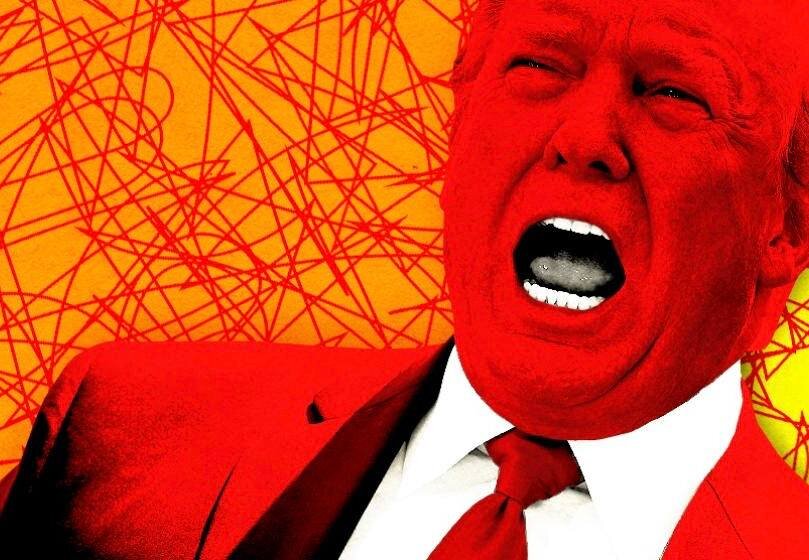 2025-12-01 21:34
2025-12-01 21:34
By Faramarz Kouhpayeh
Bully politics: The American style
Trump calls Maduro, tells him to step down and leave Venezuela or get attacked
TEHRAN – American commentators trying to make sense of U.S. President Donald Trump’s governing style say he is not mentally intact or that he has an unstable personality easily swayed by the last person he speaks to.
-
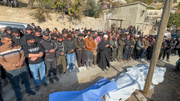
By staff writer
From accord to atrocity: Gaza human cost mounts under broken truce
TEHRAN – The U.S.-brokered ceasefire that went into effect on October 10 was designed to end two years of relentless Israeli military operations in Gaza. Yet, less than two months later, it has proven to be little more than a paper promise.
-
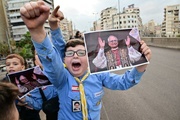
By Nabil Mansour
Could the Pope’s Lebanon visit temper Israeli threats and mend political divisions?
BEIRUT - Pope Leo XIV’s arrival in Beirut—his first foreign trip since ascending the papacy—comes at a moment when Lebanon is poised between escalating Israeli threats and a political class locked in chronic division.
-
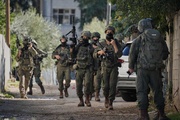
By Wesam Bahrani
West Bank raids deepen as annexation calls rise
TEHRAN – The Israeli regime is escalating its raids in the West Bank amid rising calls to formally annex the occupied territories.
-
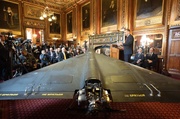
By Soheila Zarfam
Israel, not Russia, is damaging Iran-Poland ties
TEHRAN - Iran and Poland have traditionally enjoyed frictionless ties. However, this relationship hit a snag in October when Polish Foreign Minister Radosław Sikorski attended an anti-Iran presentation at the UK Parliament.
-

By Ali Hamedin
“All That’s Left of You”: a story shot in the eye of the storm
TEHRAN- “All That’s Left of You” is the latest work by Cherien Dabis — the Palestinian-American director, writer, and actor. Released in January 2025, the film places the audience on a historical journey, from the beginning of the Nakba (1948) to present-day Palestine, following the story of a single family to illuminate the harrowing fate of a people whom Zionist forces sought to erase from history.
Politics
-
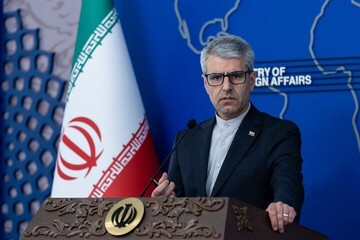
What Iran’s foreign ministry spokesman said at his weekly briefing
TEHRAN – At his weekly press conference, Iran’s Foreign Ministry spokesperson Esmaeil Baqaei addressed a wide range of regional and international issues — from escalating tensions in Lebanon and Gaza, to relations with Saudi Arabia and Turkey, to the state of nuclear talks with Europe.
-
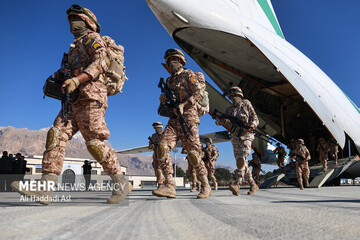
Iran hosting SCO joint anti-terror drills
TEHRAN – The Ground Force of Iran’s Islamic Revolution Guards Corps (IRGC) is hosting large-scale joint counter-terrorism manoeuvres being conducted by member states of the Shanghai Cooperation Organization (SCO).
-
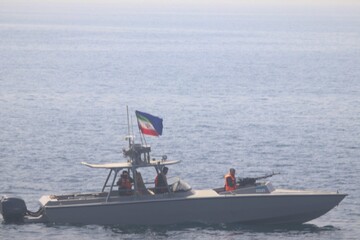
Eswatini-flagged vessel smuggling fuel seized in Persian Gulf
TEHRAN – A commander of Iran’s Islamic Revolution Guards Corps (IRGC) says an Eswatini (Swaziland)-flagged vessel carrying 350 Liters of contraband fuel has been seized in the Persian Gulf waters.
Sports
-
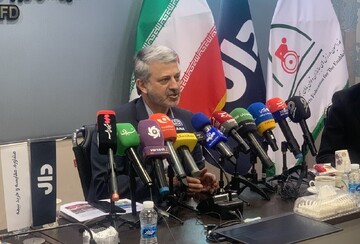
Asian Youth Para Games pave the way for the future: Koohpayehzadeh
TEHRAN – Jalil Koohpayehzadeh, head of Iran's Sports Federation for the Disabled, said the Asian Youth Para Games 2025 present an opportunity to identify talented athletes for the 2026 Asian Para Games and the 2028 Paralympic Games.
-
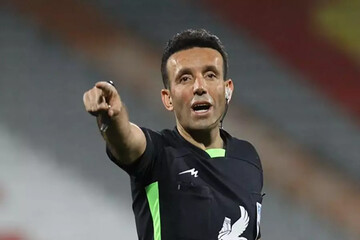
Vahid Kazemi selected for Tehran derby clash
TEHRAN – Vahid Kazemi will be the center referee for the Tehran derby between Persepolis and Esteghlal.
-

Iran suffer third successive loss at IHF Women's World Championship 2025
TEHRAN – Iran lost to Senegal 30-21 at the 27th IHF Women's World Championship 2025 Senegal Monday night.
Culture
-
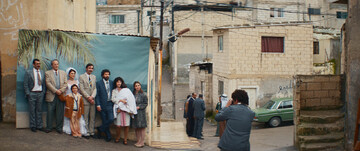
“All That’s Left of You”: a story shot in the eye of the storm
TEHRAN- “All That’s Left of You” is the latest work by Cherien Dabis — the Palestinian-American director, writer, and actor. Released in January 2025, the film places the audience on a historical journey, from the beginning of the Nakba (1948) to present-day Palestine, following the story of a single family to illuminate the harrowing fate of a people whom Zionist forces sought to erase from history.
-
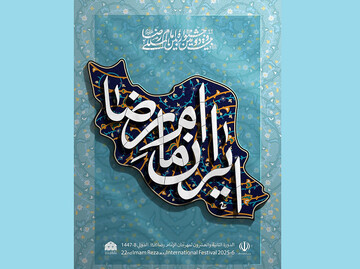
Imam Reza (AS) Intl. Festival to showcase art, literature, scholarly works
TEHRAN- The 22nd edition of Imam Reza (AS) International Festival is scheduled to be held in various provinces in Iran in April 2026, featuring a diverse range of cultural, artistic, and scholarly programs.
-

Iranian animation “The Legend of Sepehr” wins top award at Tanzanite International Film Festival
TEHRAN – The Iranian animated film “The Legend of Sepehr” directed by Emad Rahmani and Mehrdad Mehrabi won the top award of the Tanzanite International Film Festival, which was held in Dar es Salaam, Tanzania, from November 27 to 29.
Economy
-
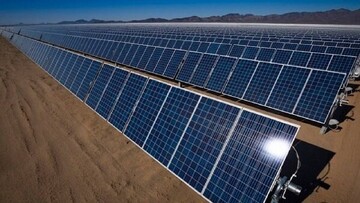
Iran’s renewable capacity exceeds 3,000 MW as govt. accelerates solar expansion
TEHRAN – Iran’s renewable power capacity has surpassed 3,000 megawatts following the addition of 445 megawatts of new clean-energy generation, the deputy energy minister said at an inauguration ceremony for recently completed solar projects.
-
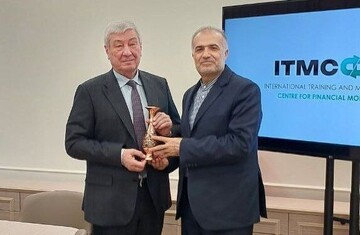
Iran, Russia discuss stronger cooperation against money laundering
TEHRAN – Iran and Russia have held talks on expanding bilateral and multilateral cooperation to combat money laundering and terrorism financing, according to the Iranian Embassy in Moscow.
-
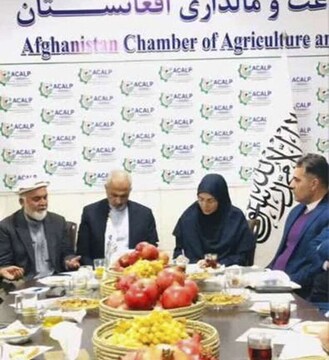
Iran-Afghanistan co-op in animal quarantine, phytosanitary being strengthened
TEHRAN- The head of Iran's Plant Protection Organization announced the enhancement of cooperation between Iran and Afghanistan in the areas of livestock quarantine and phytosanitary.
Society
-

National campaign on healthy diet to be held
TEHRAN – The national campaign to promote healthy eating habits will kick off on December 6 and will run for over two weeks.
-
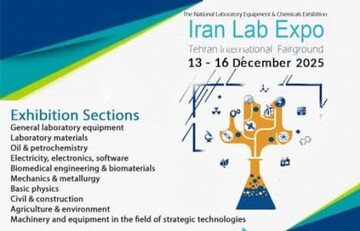
Tehran to play host to 13th Iran Lab Expo
TEHRAN –The 13th exhibition of Iranian-made laboratory equipment and materials called ‘IRAN LAB EXPO’ is scheduled to be held from December 13 to 16 at Tehran Permanent International Fairgrounds.
-
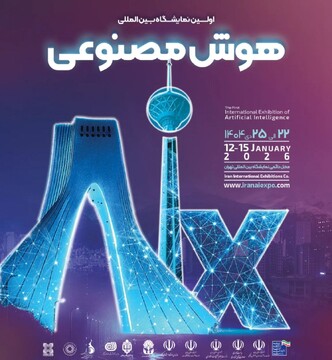
First intl. AI exhibition slated for January
TEHRAN – Tehran will play host to the first international artificial intelligence (AI) exhibition, known as AIX Expo, which is scheduled to be held from January 12 to 15, 2026, at Tehran Permanent International Fairgrounds.
Tourism
-
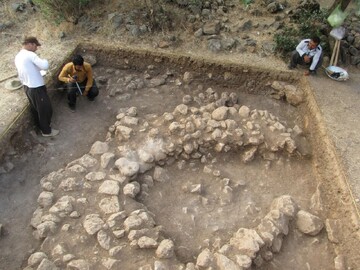
Excavations reveal secrets of seasonal pastoral camp in Hawraman Mountains
TEHRAN — Newly published findings from rescue excavations at the Bardeh Mar archaeological site in Iran’s Hawraman region are shedding fresh light on the seasonal rhythms of pastoral life during the Islamic period.
-
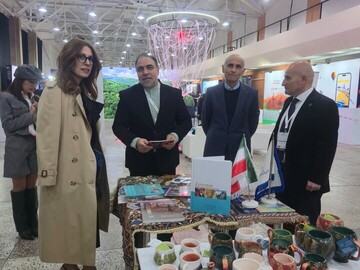
Iran attractions showcased at Yerevan tourism exhibition
TEHRAN—Iran participated at Yerevan international tourism exhibition which was recently held at Meridian Expo & Event Centre in Yerevan, Armenia.
-
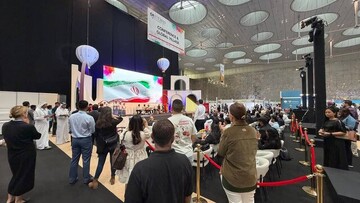
Iran highlights itself as safe, family-friendly destination at QTM 2025
TEHRAN--Iran has taken great steps to boost tourism in the Persian Gulf region by emphasizing its introduction as a safe, family-friendly, and affordable destination at Qatar Travel Mart (QTM 2025).
International
-

From accord to atrocity: Gaza human cost mounts under broken truce
TEHRAN – The U.S.-brokered ceasefire that went into effect on October 10 was designed to end two years of relentless Israeli military operations in Gaza. Yet, less than two months later, it has proven to be little more than a paper promise.
-

Could the Pope’s Lebanon visit temper Israeli threats and mend political divisions?
BEIRUT - Pope Leo XIV’s arrival in Beirut—his first foreign trip since ascending the papacy—comes at a moment when Lebanon is poised between escalating Israeli threats and a political class locked in chronic division.
-

West Bank raids deepen as annexation calls rise
TEHRAN – The Israeli regime is escalating its raids in the West Bank amid rising calls to formally annex the occupied territories.
Video Comment
-

Holy Mary Metro Station marks interfaith unity in Tehran
-

Academics analyze social dimensions of Resistance in Tehran conference
-
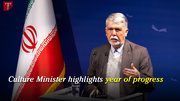
Culture minister highlights year of progress in arts, global image enhancement
-
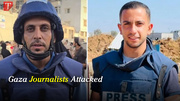
Gazan Journalists attacked by Israel
-
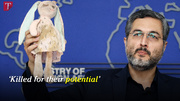
Brother of Iranian scientist murdered in Israeli strike speaks out
Most Viewed
-
$30 Billion Roadmap for Tehran–Ankara Ties
-
Air defense network on full alert, says Iranian commander
-
Iran officially registers sovereignty over trio Persian Gulf islands
-
Saudi deputy FM holds talks in Tehran as Iran calls for stronger regional coordination
-
Iran’s non-oil trade reaches $76.5b in 8 months
-
Law above the clouds: Caracas counters Washington’s illegal threats
-
Bully politics: The American style
-
Iran, Pakistan ink several MOUs in Karachi intl. food, agriculture expo
-
Israel, not Russia, is damaging Iran-Poland ties
-
World now views Iran as a prominent maritime power: Navy chief
-
Iran hosting SCO joint anti-terror drills
-
Israel waging ‘ecocide’ to erase Gaza’s future, expert warns
-
Venezuela thanks Tehran for supporting Caracas
-
Philippine protesters rally against trillion‑peso corruption scandal
-
What Iran’s foreign ministry spokesman said at his weekly briefing
